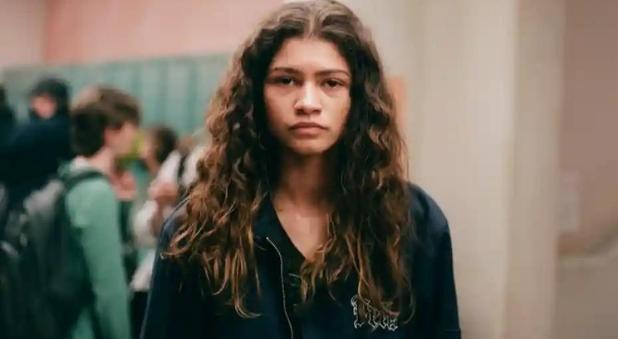“Just give Zendaya her Emmy right now.” The cries echoed across social media in response to one of the latest episodes of Euphoria, the edgy, boundary-pushing TV show that graphically depicts high schoolers obsessed with sex, drugs and partying.
Created for HBO in 2019 by Sam Levinson, based on his own lived experience with drug dependency, Euphoria supposedly depicts a “realistic” teen experience. At its core, it focuses on one teenager's struggle with drug addiction and the damage she does to her relationships along the way. And it has been extremely popular, with episode views reaching 14 million for the second season's recent launch in the US.
The potentially Emmy-winning episode in question, “Standing Still Like the Hummingbird”, shows the intervention between Rue (played by Zendaya) and her family and friends. Starting with Rue searching for a suitcase of drugs, we see her attack her mother, break up with her girlfriend, hit her friend Elliot and eventually break down. By the end of the episode, she agrees to go to hospital but then realises she is on the way to rehab and escapes.
The episode, and the series as a whole, is raw, scary and graphic. It’s painful to watch and apparently just as painful to play. “You can see there’s a little moment after that where all of it becomes regret,” says Zendaya, when asked by Entertainment Weekly about playing Rue’s downfall. “You can see her doing it again and regretting it and wondering why she is doing it… it’s just a really painful cycle”.
The impact of Euphoria
The show is reminiscent of 13 Reasons Why, and while the representations of addiction are nuanced and a welcome step forward (compared to Hollywood films that present addiction as criminal and nothing more), the level of violence, sexual mistreatment and drug abuse is pretty hard to take. And some scenes have even been edited for the Australian market!
The Tik Tok meme “Euphoria High” illustrates the dissonance between the show and real life, with teens creating videos that poke fun at the behaviour and outfits of the kids onscreen. While showrunner Levinson says the scenes are lifted from his own experience as a teen, it has come under criticism for introducing dangerous influences rather than representing them. Yes, this is the experience of some teenagers, but it is far from the norm.
While the show is rated MA15+, the availability across streaming services makes it hard to police, particularly when marketed directly to teens. However, given that almost half of Australian high school seniors have had sex (according to a recently released National Survey of Australian Secondary Students), perhaps it could be a helpful starting point for discussions with your own teens.
The power of redemption
Across the show, there is something compelling about the story of Rue, who despite her destruction and mistakes, is never depicted as unredeemable. Instead, Zendaya plays her with a level of sympathy and sensitivity, even when she has hit rock bottom.
“Remember that we are not the worst mistake we’ve ever made. And that redemption is possible,” Zendaya said about Rue in an emotional Instagram post after Euphoria’s latest episode.
That a gospel understanding of redemption could shine through in even the most gritty and disturbing show is an important reminder for all of us that there is no one who God writes off.
Whether or not you decide to watch Euphoria (or let your teen watch it!), whether you not you think Zendays deserves an Emmy or is helping change the representation of drug addiction forever, Euphoria is helping open those deeper conversations around forgiveness, suffering and relationships.
And maybe that’s the point.






















